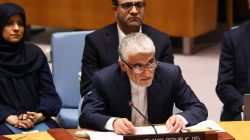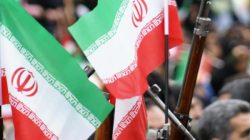Pakistan, May 31 — The term “kowtowing” denotes an exaggerated display of subservience, originating from a traditional Chinese practice involving kneeling and lowering one’s forehead to the ground.
Pakistan has faced repeated instances of humiliation and making concessions due to external pressures throughout its history.
On September 22, during the 1965 Indo-Pakistani conflict, Foreign Minister Z.A. Bhutto of then-President Ayub Khan addressed the United Nations Security Council with this statement: “It is my privilege to convey the subsequent message from the President of Pakistan, which I’ve recently obtained from Rawalpindi— ‘I have instructed the Pakistani military forces accordingly. Starting at 12:05 PM local time today, they must cease all hostilities. Provided the government of India gives equivalent directives to their armed units, our troops shall refrain from engaging the adversary except when attacked.'”
It’s not surprising then. The United States halted all forms of assistance and military equipment to Pakistan. Previously, out of concern for Western disapproval, Ayub Khan rejected proposals for Pakistan to develop nuclear capabilities; additionally, he chose not to intervene militarily in Kashmir during the 1962 Sino-Indian conflict, thus failing to seize a rare chance to reclaim Kashmir.
The notorious exploits involving Yahya Khan’s indulgences, along with his absurd misadventures and blatant mistakes, are widely recognized and extensively recorded enough not to warrant repetition. The subsequent division of Pakistan speaks volumes about the situation.
The Indian Army’s takeover of the Siachen Glacier in 1984 received an indifferent reaction from General Zia ul Haq, who remarked, “Nothing grows there; not even a blade of grass.” Clearly, reclaiming the Siachen Glacier did not figure among U.S. priorities. Following the 1999 Kargil conflict, the United States compelled India to withdraw all its troops completely.
In 1999, Abhinandan, the detained Indian pilot, was returned within hours following threats from Prime Minister Modi to employ military action against Pakistan.
The intense surge in tensions between India and Pakistan following the Pahalgam attack represents a significant change from Pakistan’s usual approach when facing international pressure. General Syed Asim Munir, who was serving as the Chief of the Army Staff at that time, has been hailed as the one addressing our nation’s prolonged series of embarrassments. Through his remarkable bravery and swift responses to terrorist activities, along with Pakistani counteractions against attacks originating from Afghanistan and Iran, and more recently, confronting Indian aggression, he has solidified his standing as a savior for the country. It seems that both strategic estimations based on Chanakya’s principles and ideologies rooted in Hindutva underestimated him, leading to adverse consequences for their nations.
The Field Marshal has warned India, the Zionists, and the rest of the world through concrete actions that any attempt to threaten or employ force against the unity and independence of Pakistan will be swiftly, firmly, and efficiently countered. Pakistan has possessed the capability to retaliate for some time; today it also possesses the resolve to do so.
Pakistan confronts significant internal and external difficulties. Economic reform is urgently needed, as corruption and favoritism are widespread and escalating rapidly. Restoring political stability remains crucial, alongside revitalizing most of the country’s constitutional bodies which currently operate inefficiently. Bureaucratic processes similarly face severe inefficiencies. Meanwhile, the judicial system stands at one of its weakest points historically; its ethical standing and popular trust lie in disarray. Much of the civil leadership finds itself ensnared by selfish agendas rather than national priorities. This group has consistently fallen short in previous years and seems ill-equipped for current or impending tasks.
A notable strength of Prime Minister Shabaz Sharif lies in his exceptional capacity to collaborate seamlessly with the military—a skill unmatched among all former Pakistani prime ministers. None before him could achieve this level of cooperation between these two critical sectors.
Pakistan must be steered away from the edge of a precipice. The newly designated Field Marshal faces an enormous challenge ahead. Both he and his organization are operating efficiently and have performed crucially during one of our country’s most pivotal times. They possess significant public trust and backing.
The timing is ideal for someone with such unyielding resolve and tactical foresight. In both 1965 and 1971, China did not have an adequate industrial foundation or sufficient technological advancement to provide significant support to Pakistan. Throughout the Kargil conflict, China had to exercise self-restraint. Meanwhile, during the 1999 Balakot confrontation, China strongly supported regional and global tranquility and stability. The aim was to defuse tensions. Although the so-called “quad” comprising the U.S., the United Kingdom, Canada, and Australia raised concerns among the Chinese, they refrained from taking action.
The so-called “Trump Tariff War” has unexpectedly liberated China from its own limitations. This shift carries significant repercussions across economic, political, and military domains. Currently, China boasts a dominant industrial sector, cutting-edge technology, and a strong resolve to claim its place as a major power. Within President Xi Jinping, often referred to as the Field Marshal, China finds the ideal figurehead for forging a strategic collaboration. Our relationship with China now mirrors Israel’s close ties with the United States.
The successors of the Middle Kingdom employ strategic thinking and actions. A Sino-Pak-Afghan-Bangladeshi alliance is forming. This coalition will likely include numerous additional regional nations. Significant prospects abound, encompassing both economic and military domains.
Regarding democracy and the rule of law, the objective truth is that nothing close to these ideals has materialized in Pakistan up until now. Instead, we’ve seen “democratically elected” authoritarian regimes take hold. Moreover, the judicial system generally falls short in terms of capability, fairness, and both public and ethical credibility.
In ancient Greece, tyranny did not carry the same negative implications as it does today. Instead, it was widely accepted, aimed at benefiting the common people, and emerged after the decline of monarchies. This system served as a bridge towards the development of Athenian democracy. Likewise, in Ancient Rome, dictators held temporary positions with exceptional authority solely during critical military or domestic emergencies; their tenure lasted up to six months or until the emergency ceased, whichever came first. Today, however, both terms evoke images of unauthorized control and autocratic governance beyond democratic frameworks, constitutions, legal standards, and transparency. These conditions often prevailed even under elected administrations and non-constitutional systems. That has been the situation many nations face.
I do not endorse tyranny nor dictatorship, yet considering Pakistan’s significant external and internal threats, achieving a unified stance on safeguarding the nation’s integrity and sovereignty seems essential.







